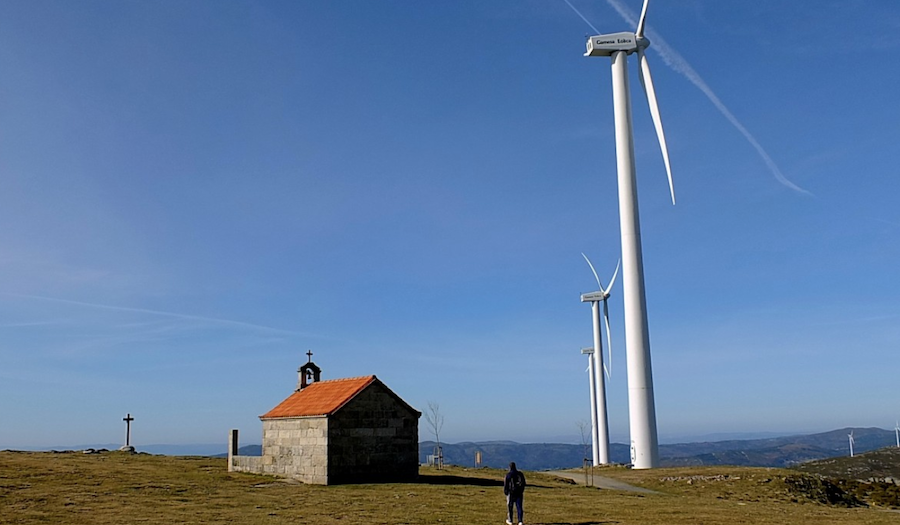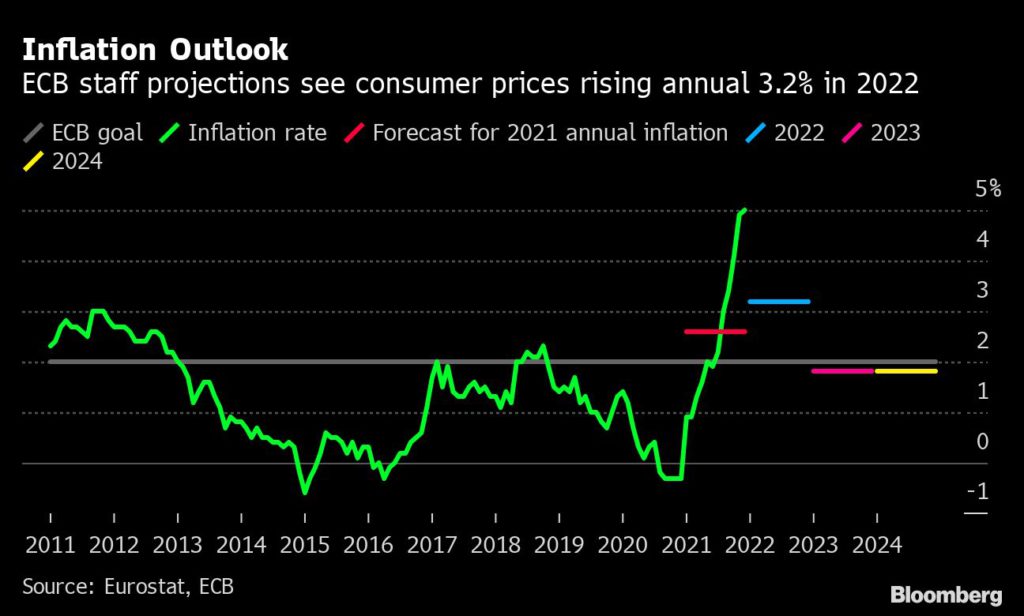Energy transition is upside risk to ECB forecasts, Schnabel says

The European Central Bank’s inflation forecasts may need to be revised upward because of the continent’s attempts to cut carbon emissions and transition to green energy, Executive Board member Isabel Schnabel said.
“In an environment of large excess savings and protracted supply disruptions, the energy transition may lead to inflation remaining higher for longer, thereby potentially raising the risks of inflation expectations destabilizing,” Schnabel said in a speech to the American Economic Association on Saturday, adding that the ECB would need to act in such a scenario.
The comments come after data on Friday showed inflation unexpectedly accelerated to 5% in December, setting a record in the history of the common currency. That complicates the ECB’s central thesis that the surge in prices in recent months will fade as supply tensions unwind and energy costs cool.

The ECB’s latest economic projections see inflation hitting 3.2% this year, before slowing to 1.8% in 2023 and 2024. Yet Schnabel on Saturday said that the technical assumptions on the energy component in those forecasts are “surrounded by significant uncertainty.”
“The decline of headline inflation to levels below 2% at the end of the projection horizon hinges on the assumption, derived from futures curves, that in 2023 and 2024 energy is not expected to contribute to headline inflation. History suggests that such a profile would be unusual.”
An analysis “suggests that it is enough for oil prices to remain at November 2021 levels for HICP inflation in 2024 to reach” the ECB’s 2% price target, she said.
While the energy transition poses an “upside risk” to the ECB’s inflation forecasts, currently “there are no signs of broader second-round effects,” Schnabel said.
The European Union wants to become the world’s first carbon-neutral region by 2050, an effort known as the Green Deal. It is a central pillar of the EU’s Next Generation plan as well as its next seven-year budget.
Schnabel also said that a carbon tax, like the one proposed by the EU, differs from an adverse oil supply shock and might be consistent with a “modest positive impact,” which could in turn force the ECB to act to maintain price stability.
President Christine Lagarde said last month that inflation is likely to remain elevated in the near term before slowing in 2022 to settle below the 2% target. Bank of France Governor Francois Villeroy de Galhau has also called for calm, saying earlier this week that inflation is “now close to its peak.”
(By William Horobin)
More News
{{ commodity.name }}
{{ post.title }}
{{ post.date }}




Comments